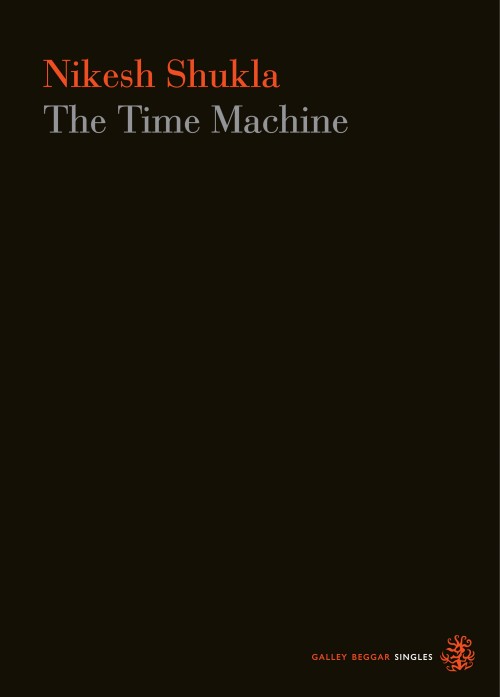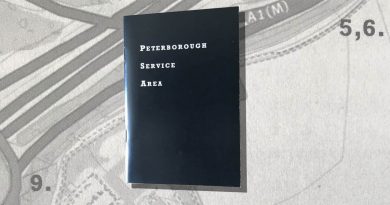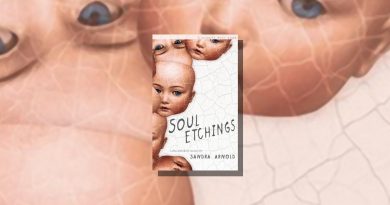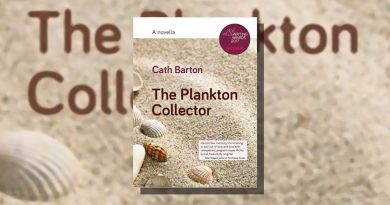The Time Machine by Nikesh Shukla
-Reviewed by Cath Barton-
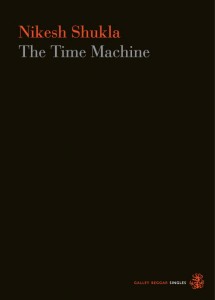
I was tempted to start this review by trying to write a recipe for a successful story, because it’s with a recipe that Nikesh Shukla begins each chapter of his short novella, The Time Machine; but I knew that mine would probably be hackneyed, whereas his are as fresh and fragrant as the Indian spices they contain.
He is writing about cooking, but he is also writing, so poignantly, about his narrator Ashok’s mum, who is an essential but missing ingredient in his life. Nikesh Shukla starts his story by painting a vivid picture of the kitchen in Ashok’s family home, in which:
‘Standing next to the table and chairs, one flip-flopped foot up on a chair, cutting potatoes into the palm of her hand with a small serrated knife is my mum.’
Except that Ashok’s mum has died, and once he has eaten the food she left in the freezer, the only way he can bring back the smells and tastes which she made essential to his life is to learn to cook.
Stories dealing with the subject of grief can be maudlin and heavy, but this is a tale leavened with humour and seasoned with love, like the dishes from his childhood which Ashok eventually manages to recreate.
This story has stayed with me over the weeks since I first read it, a measure of the power and clarity of the writing. It has a straightforward and clear three-act structure, within which Ashok’s Aunties attempt to teach him to cook the (apparently) simplest of Gujarati dishes. They are, of course, simple for them, as they were for Ashok’s mother. For him everything is a major hurdle, from not knowing the correct names of ingredients in the shop to avoiding burning himself and the food. But even though his first attempts at cooking fail to produce food like his mum cooked, through the smell of burnt spices he begins to feel that he’s at home again.
I like the use of all the senses in this story, especially smell and taste, which are for all of us so evocative, and can bring back past times, especially childhood, in an instant. When Ashok succeeds in making a reasonable chapatti: ‘It tastes like forever ago.’
Nikesh Shukla creates convincing characters, though the one I’m least sure about is Jess, Ashok’s English wife, who is not as clearly defined as Ashok and his Aunties. But I’m right there with them in the kitchen, feeling as fed up as they are when the smoke alarm goes off, the pan is burnt and Ashok declares:
‘I am officially useless.’
In spite of his early disasters he doesn’t give up, determined to find out whether his time machine can work. His progress to instinctively putting ingredients together is perhaps a little fast, but maybe the transition from overwhelming grief back to managing everyday life is like that. Life doesn’t progress in regular phases but in fits and starts. What Ashok does is also a concrete way to deal with loss and grief. Rather a good recipe, I’d say.
This novella is published by Galley Beggar Press, who are making a lot of new short fiction available as e-books. It’s worth taking a look at their Singles Club.

Reviewed by Cath Barton — Cath Barton’s prize-winning novella The Plankton Collector (2018) is published by New Welsh Rarebyte and her second novella, In the Sweep of the Bay (2020), by Louise Walter Books. Cath is also active in the on-line flash fiction community.
Photo © Toril Brancher
Twitter: @CathBarton1 | Website: cathbarton.com

